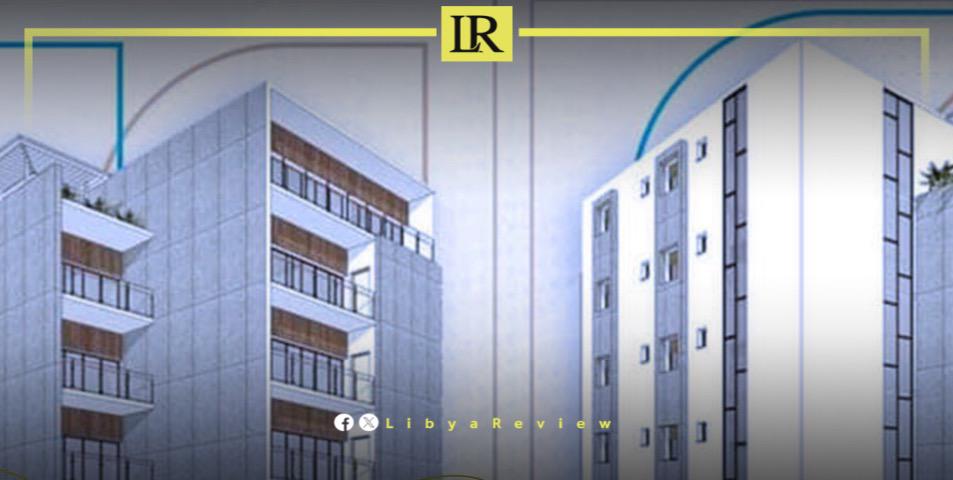The Libyan National Development Agency has announced its inaugural housing project for the year, set to construct 120 residential units in the Ras Lanuf area. This initiative marks a significant step in infrastructure development, spearheaded by a consortium of Turkish companies specializing in construction and infrastructure.
According to the agency’s statement, the project includes multi-story buildings, each comprising four floors, along with dedicated facilities such as a mosque and a school for the residential community. The plan also integrates recreational spaces, playgrounds, and green areas as depicted in the preliminary designs and maps.
This housing project is the first major venture by the National Development Agency since its inception in 2024. It is expected to be the precursor to similar developments across various regions and cities under the supervision of the General Command of the Libyan Armed Forces.
The project not only aims to enhance the residential infrastructure in Ras Lanuf but also to stimulate local development and provide quality living conditions for its residents. With a focus on sustainability and community welfare, this initiative is a pivotal part of the broader strategic development efforts in Libya.
Libya has been in chaos since a NATO-backed uprising toppled longtime leader Muammar Gaddafi in 2011. The county has for years been split between rival administrations.
Libya’s economy, heavily reliant on oil, has suffered due to the ongoing conflict. The instability has led to fluctuations in oil production and prices, impacting the global oil market and Libya’s economy.
The conflict has led to a significant humanitarian crisis in Libya, with thousands of people killed, and many more displaced. Migrants and refugees using Libya as a transit point to Europe have also faced dire conditions.
The planned elections for December 2021 were delayed due to disagreements over election laws and the eligibility of certain candidates. This delay has raised concerns about the feasibility of a peaceful political transition.
Despite the ceasefire, security remains a significant concern with sporadic fighting and the presence of mercenaries and foreign fighters. The unification of the military and the removal of foreign forces are crucial challenges.


